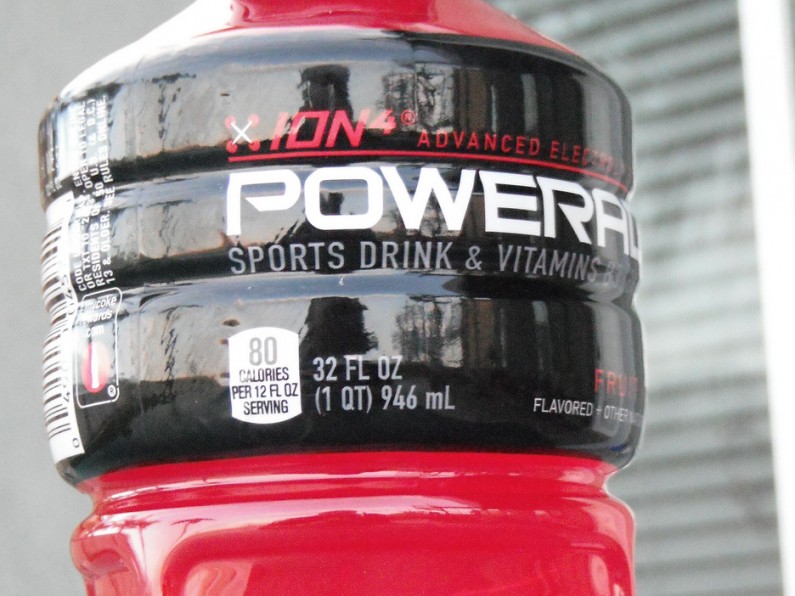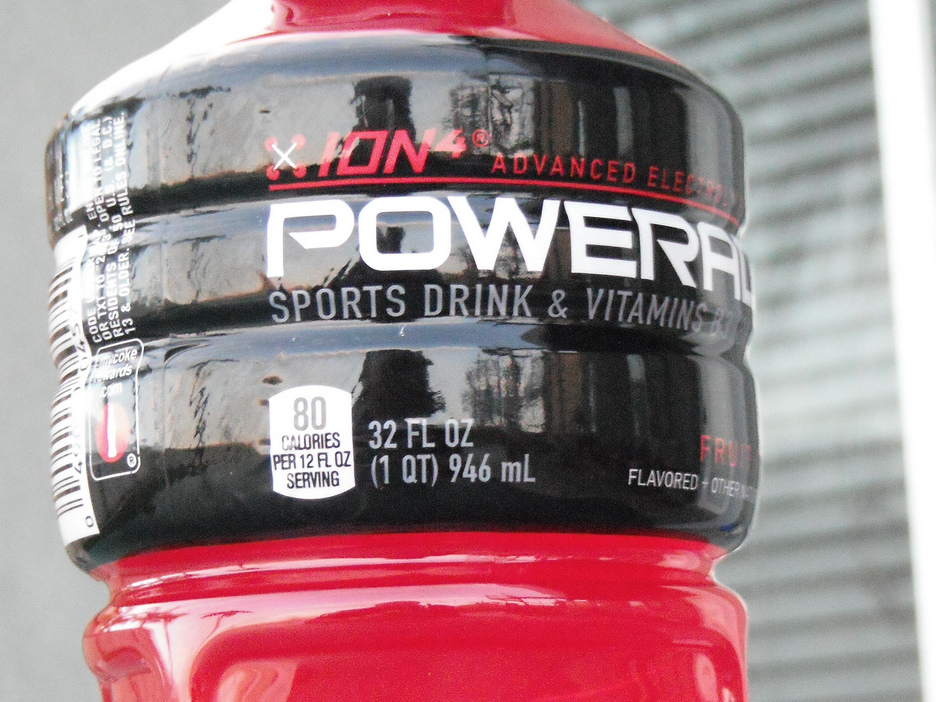
Coca-Cola has agreed to remove a controversial ingredient from its Powerade sports drink, after controversy around the chemical spurred Gatorade to drop it last year. The chemical in question, brominated vegetable oil (BVO), was first patented as a flame retardant and isn’t legal in Japan or the European Union.
Last year, BVO was the subject of an online petition started by 15-year-old Sarah Kavanagh, who wanted the Food and Drug Administration to crack down on the chemical’s use in products marketed to athletes. Kavanagh pointed out that health-conscious individuals probably don’t want to ingest a chemical that’s banned in other countries. Her Change.org petition garnered over 200,000 supporters, and about a month later, PepsiCo Inc. announced that it would remove BVO from its Gatorade products.
Coca-Cola, which lags behind PepsiCo in the energy drink market, is now following suit. BVO is no longer listed as an ingredient in its fruit punch and strawberry lemonade flavored Powerade drinks, and a representative for the company confirmed that Powerade is now “BVO-free.”
The move is a victory for the 15-year-old, who helped put this issue back in the spotlight. Although the petition focused on Gatorade ended up being more popular, Kavanaugh had also launched one targeting Powerade. “I knew that if Gatorade could do the right thing, so could Powerade,” she notes in an update on her Change.org page celebrating the news from Coca-Cola.
“Consumers are coming together quickly and efficiently to influence the world’s biggest beverage companies in an unprecedented manner,” Pulin Modi, a senior campaign manager for Change.org, pointed out to the Associated Press.
Indeed, this isn’t the first example of an online petition effectively putting pressure on the food and beverage industry. Earlier this year, a food blogger launched a petition asking Subway to remove a chemical that’s used to make yoga mats and rubber soles from its sandwich bread. Shortly thereafter, Subway agreed to remove the chemical. Although the company stressed that it was already in the process of phasing it out, and the move wasn’t entirely a result of the online activism, the attention on the so-called “yoga mat chemical” still generated weeks of bad press for the sandwich shop.
A loophole in FDA regulations allows companies to use food additives that haven’t necessarily been reviewed by the federal health agency. According to the Pew Charitable Trusts’ research in this area, about 10,000 chemicals are allowed to be added to our food, but about 3,000 of them have never been reviewed for safety by FDA officials. Often, that’s because food safety decisions are made by corporations who have a vested interest in keeping their products on the market, and federal health officials end up waiting decades before cracking down on ingredients that are potentially harmful.
This article originally appeared in Think Progress.


